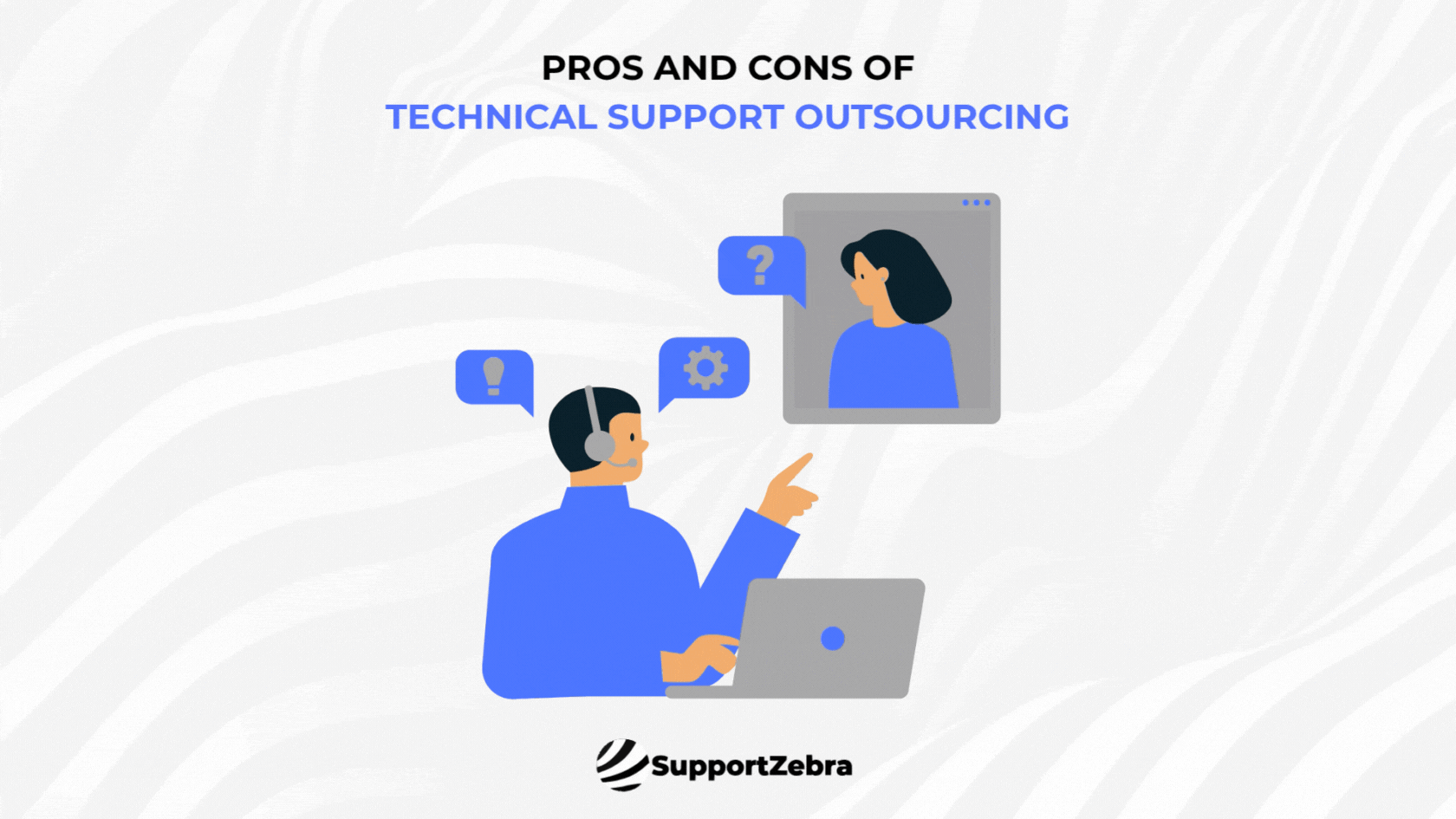Why Do Companies Outsource Technical Support?
Running a business is tough enough, right? Juggling growth, keeping customers happy, innovating, and trying not to burn out your fantastic team. The idea of handing off your tech support to someone else? It arises for many growing companies. Saving money, getting expert help, and scaling up quickly sounds fantastic.
But let’s be real – those nagging worries about losing control, dealing with communication headaches, or risking security? You can’t just ignore those. Let’s break down the actual pros and cons of outsourcing technical support, straight up, no confusing tech-speak.
Why Businesses Turn to Technical Support Outsourcing
Think about your core team. They’re rockstars at what you hired them for – building your product, crafting your brand, and delighting customers. Do you want them spending hours resetting passwords or troubleshooting basic software glitches? Probably not.
Outsourcing tech support lifts that weight off their shoulders. It frees them up to focus on the big-picture aspects that drive your business forward, while trained professionals handle the day-to-day technical issues. It’s about letting everyone play to their strengths.
What Are the Pros of Technical Support Outsourcing
1. Cost Savings
Let’s talk money first. Building an in-house tech team can be costly. Salaries, benefits, ongoing training, software licenses, maybe even extra office space – it piles up quickly. Outsourcing? You typically pay a predictable fee, often at rates lower than those of hiring locally, especially when partnering globally. For smaller teams or startups watching every penny, that predictable cost can be a total game-changer. It turns a significant expense into something much more manageable.
2. Staying Focused on What Matters Most
Your people are your superpower. They’re the innovators, the relationship-builders, the ones driving your vision. When they’re buried under a mountain of support tickets, that genius gets stifled. Outsourcing gives them the breathing room. Imagine your developers developing, your marketers marketing, and your leaders leading – all because they’re not stuck fixing printer jams. That focus is pure gold for growth.
3. Built-In Flexibility and Room to Scale
Business is a rollercoaster. Some months are calm; others feel like pure chaos. One of the biggest wins with outsourcing is scalability. Need to ramp up support for a massive product launch or holiday rush? Your partner can handle it. Things quiet down? You can scale back. No frantic hiring sprees, no painful layoffs. Its flexibility is built right in.
4. Around-the-Clock Support
Your customers don’t clock out at 5 PM, and neither should your support (ideally). A good outsourcing partner can provide genuine 24/7 coverage across different time zones and languages. That means faster help when your customers need it, leading to happier customers and fewer frustrated emails sitting unanswered overnight, which is crucial if you serve people worldwide.
5. Tapping Into Specialist Knowledge and Tools
When you choose the right partner, you’re getting dedicated tech support pros who live and breathe this stuff. They bring experience from handling similar issues across different industries, offering valuable insights you might not have in-house. Plus, they often invest in the latest tools and AI-powered systems that speed up resolutions and keep customer satisfaction high, tools that might be too expensive for you to implement solo.
6. Faster, More Reliable Responses
Outsourcing firms typically operate under strict contracts known as Service Level Agreements (SLAs). This means they’re obligated to hit specific targets for response times, resolution times, and quality. The result? Your customers receive faster, more reliable help, and you gain peace of mind knowing that issues are being handled professionally and efficiently every time.
What Are the Cons of Technical Support Outsourcing
1. Communication Can Get Tricky
Let’s be honest—communication breakdowns are one of the top complaints when support is outsourced. Language barriers, cultural differences, or mismatched time zones can lead to confusion or slow responses. The good news? These issues aren’t inevitable. With the right partner and proper onboarding, many of them can be addressed early on.
2. Maintaining Consistency and Quality
When support is handled outside your walls, there’s a chance the customer experience may vary. Your outsourced team might not fully understand your product or company voice, which can lead to inconsistent service. That’s why it’s important to stay involved—set clear standards, monitor performance, and keep the feedback loop open.
3. Protecting Customer Data
Technical support teams often handle sensitive information, making security and privacy significant considerations. Entrusting a third party means you need to be sure they’ve got strong data protection measures in place. Always check for compliance with regulations like GDPR or HIPAA, depending on your industry, and don’t be afraid to ask tough questions about how they manage risk.
4. Less Direct Control
When your support team is sitting in the same office, it’s easy to pop over and resolve something quickly. That’s not always possible with an outsourced setup. You’ll need systems in place to monitor performance, track KPIs, and escalate issues when required. It takes a little more structure and trust, but it can work if set up right.
5. Potential Hidden Costs
While outsourcing can be cheaper at first glance, costs can sneak up if things aren’t managed properly. Missed SLAs, surprise fees, or even switching vendors down the line can chip away at your savings. A clear, detailed contract and regular check-ins are your best protection here.
Ready to Weigh Your Options? Talk to an Outsourcing Expert Today.

Outsourcing technical support isn’t just a cost decision—it’s a strategic partnership. Success hinges on clear expectations, ongoing communication, and shared goals. Here’s how to make it work:
- Start small. Run a pilot before scaling up.
- Pick the right partner. Choose a provider with industry experience, strong references, and values that align with yours.
- Set clear expectations. Define SLAs, tone, security measures, and escalation processes from day one.
- Stay involved. Hold regular check-ins, review performance, and give feedback.
- Prioritize security. Ensure your provider meets compliance standards and protects your data.
Is outsourcing right for you? If you need flexibility, global reach, or extra support without overloading your team, it can be a smart move. However, if your business relies on highly specialized or personalized services, an in-house approach may be the better fit.
The key is to understand the risks and rewards. With the right partner and a clear plan, outsourcing technical support can drive real growth.

